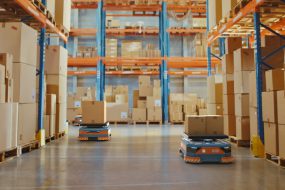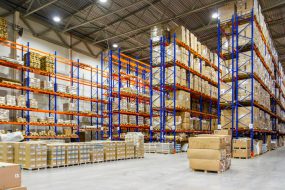When shipping internationally, it’s essential for e-commerce businesses to understand e-commerce duties and taxes, as these customs charges can affect costs, shipping processes and – most importantly – the customer’s experience.
Related article: Last Mile E-commerce Challenges and How to Solve Them
Duties and taxes are based on the value of the goods being shipped, and can vary from country to country. In some cases, they may also be based on the type of goods being shipped. It’s good practice to be aware of all potential charges before shipping, so that you can factor them into your costs and ensure a smooth shipping process for your customers.
What is the difference between duties and taxes?
Duties and taxes are both customs charges that are placed on a shipment when it leaves or enters a country. “Duties” refer to taxes charged on goods leaving or arriving in a country, while “taxes” are sales taxes (such as VAT or GST) that are placed on purchased goods, including goods from abroad.
How will the cost of duties and taxes affect your e-commerce store?


Shipping to new countries can be a great way to expand your e-commerce business. However, before you start, it’s important to understand if any duties and taxes will apply to your shipments. These can influence your business in three ways:
- If your company pays for any duties or taxes associated with imported goods, then this will have an impact on your profit margin. Depending on the country of origin for the goods, duties and taxes can make the goods quite expensive, which could in turn slow your sales rate.
- Duties and taxes that are not paid promptly can cause a customs delay and slow your delivery time. This can be a major inconvenience for you and your customers, so you’ll need to be aware of the potential for delays and plan accordingly.
- Customers should be made aware of any potential additional costs before they finalise their purchase, so that there are no surprises. If your business is based in a country with high import taxes, consider adding a note at checkout explaining this.
Related article: How to Break into New Markets (and Why You Should) with Your E-commerce Business
Are there any instances where you won’t need to pay duties and taxes?
If you’re not sure whether or not your parcel is exempt from duties and taxes, the best way to find out is to check the import conditions that apply to your specific shipment. Depending on the country of origin and the type of goods you’re importing, there may be different rules and regulations that you need to be aware of.
Who is responsible for paying the duties and taxes on an e-commerce shipment?
As an e-commerce seller, you have the right to decide who pays the customs duties and taxes on a given shipment. If you elect to have your receiver be responsible for these payments, the customs authority will contact them directly to arrange payment.
For low-value shipments, the carrier might pay the customs charges upfront, and then invoice the receiver afterwards. In some cases, there might be additional fees charged for processing or advance payment. This can be a hassle for your receiver, and can cause misunderstandings or delays in getting your shipment.
If you want to avoid these potential problems, you can choose to pay the duties and taxes yourself. This way, you can be sure that the charges are paid and that your shipment will go through customs without any delays.
Related article: 5 Powerful Lessons from the World’s Top E-commerce Companies
Key takeaway
Duties and taxes can vary depending on the country of destination, the type of goods being shipped, and the value of the goods. It’s vital to research these charges in advance so that you can factor them into your shipping costs and ensure a smooth delivery process for your customers.
While duties and taxes may seem like a hassle, understanding and complying with them is essential for any business that ships internationally. By taking the time to familiarise yourself with these charges, you can avoid any surprises or disruptions.
E-commerce shipping, storage and logistics services at Aramex




